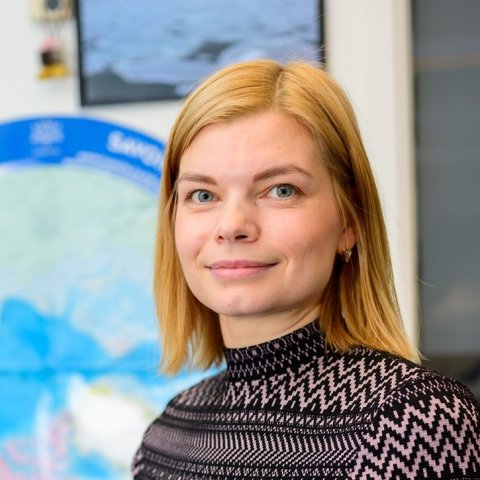Here below you can find all master courses the University Centre offers. All courses are taught in 1-3 week modules running from August through June. See how the courses are organised in the teaching schedule for both programs. Usually 2-3 courses are taught at the same time, but students may only enroll in one course at a time.
The master courses are available to you whether you plan to pursue a degree or just take a course or courses. Please review the options for guest studies to determine how you can apply.
For further information, contact the Administrative Director of Education and Teaching.
Navigation, Shipping and Offshore Activities in the Arctic
- Summer 2024
- Next course: 29. April - 10. May 2024
- CMM/CRD Elective Course | 4 ECTS
- Course:CMM52
- Instructor: Dr. Julia Olsen
About the course
During this interdisciplinary course we will learn more about past, current and future Arctic shipping and off-shore operations. The lectures provide a holistic picture on multiple changes in the socio-economic, geopolitical, environmental, and climatic conditions that influence the recent development. The course will comprise several activities such as lectures, case exercises, group works, a fieldwork and an individual assignment. During the fieldwork we will have an excursion to the local harbor where we will meet and will have a chance to discuss shipping development with local stakeholders. The excursion will be followed by a boat trip where we will learn about the practical aspects of navigation. In addition to the course literature we will use news from mass media and videos to learn about the course topics.
Instructor
is a senior researcher at Nordland Research Institute in Bodø, Norway. She has background in economics of oil and gas industry and sustainable development. In her PhD, Julia examined the consequences of Arctic shipping development on local communities in Northern Russia and Svalbard.
In addition to Arctic shipping, she conducts research on communities’ viability, tourism development, marine litter, and circular economy.

Learning outcome
The reduction of Arctic sea ice creates increased opportunities for offshore maritime industries. This course uses the developments in the Arctic as a basis for providing an interdisciplinary introduction to offshore activities, the different actors involved, and how the actors affect coastal communities and management of maritime industries. Examples from outside the Arctic will provide context and serve as a basis for comparison for global trends. Students will gain a deeper academic understanding of how environmental, socioeconomic and political drivers have impacted offshore activities such as shipping, navigation, port operations, offshore petroleum, seabed mining, power and telecommunications, security, piracy, and local community‘s socio-economic development.
On completion of the course, a student:
- can identify the basic international, national, and regional organizations, laws, treaties, and regulations governing navigation, shipping, and offshore activities such as MARPOL, the Polar Code and Heavy Fuel Oil Ban.
- has awareness of management practices for industries operating at sea.
- has an understanding of on-shore and off-shore infrastructure (harbors, communication, services) and third-party services (meteorological, communication, Search and Rescue).
- can analyze the state of affairs today (economic, political, environmental, social) related to navigation, safety and offshore activities related to key academic literature.
- can identify and analyze main factors that may affect the future of shipping and off-shore activities in the Arctic.